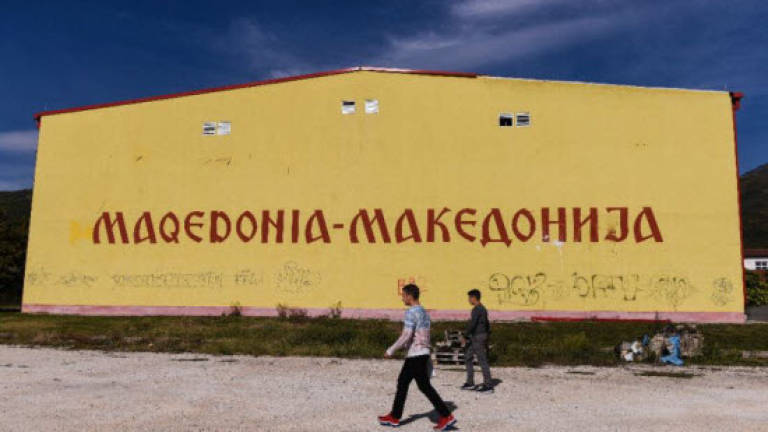Macedonia parliament opens for debate on name change deal with Greece

SKOPJE: Macedonia's parliament on Monday opened for a debate on whether to approve a deal changing the country's name to settle a long-running dispute with Greece.
Prime Minister Zoran Zaev faces an uphill battle to secure the votes needed to rename the Balkan state North Macedonia, a change that could open a path to Nato and EU membership.
Greece claims exclusive rights to the name Macedonia for its northern province. It has promised to stop blocking its neighbour's efforts to integrate with the West if the new name is ratified.
But Zaev's Social Democrat coalition, backed by parties representing Macedonia's ethnic Albanian minority, needs around a dozen more votes to get the necessary two-thirds majority in parliament to ratify the deal.
They face the tough task of flipping MPs from the right-wing opposition VMRO-DPMNE party, who staunchly oppose the name change and boycotted last month's referendum on the deal.
The parliament debate could last for up to 10 days. If the vote fails, Zaev has said he would call snap elections.
"We definitely lack votes and that will mean elections," a senior government official told AFP ahead of the sessions, asking not to be named.
"We don't want to waste time on debate if we know there are no votes," the official added.
Greece has protested the name Macedonia ever since the former Yugoslav republic declared independence in 1991.
Athens says the name implies territorial claims on its own province across the border.
A breakthrough came in June when Zaev and his Greek counterpart Alexis Tsipras agreed on the compromise North Macedonia.
Macedonia held a referendum on Sept 30 in which more than 90% of voters supported the name change.
But low turnout — less than 40% — undermined the vote's credibility.
Zaev claimed victory on the grounds that the referendum was only "consultative".
The opposition, which had urged a boycott of the vote, slammed the result as invalid because the turnout was below 50%.
The contested result has hampered Zaev's efforts to sway opposition MPs to the cause, leaving the future of the deal in the balance.
'Very uncertain'
Last week Trajko Veljanovski, an MP with the opposition VMRO-DPMNE, said: "There will be no two-thirds majority, do not hope for it".
Another of the party's MPs, Ilija Dimovski, was more cautious.
"We will see what will happen, but VMRO-DPMNE MPs, or most of them, will not support the deal."
According to Florian Bieber, a professor of southeast European studies at the University of Graz in Austria, it is still "possible that pro-agreement parties and candidates might win a two-thirds majority and ratify the agreement.
"Only if this fails, will the agreement be dead or at least shelved," he told AFP.
Pressure is on to wrap up the deal soon, with Greek elections scheduled for next year.
A change in power in Athens could quash political appetite for the agreement in Greece, where a right-wing opposition is also staunchly against the accord.
'No plan B'
Zaev has warned that this "chance will not be repeated", urging the opposition to look to "its responsibilities".
European and US leaders have also voiced strong support for the deal, hailing it as a historic opportunity for Macedonia to tie its future to the West.
"There is no plan B to join Nato without a name agreement," the military alliance's chief Jens Stoltenberg said earlier this month.
"The only way to become a member of Nato is for the country to agree on the name issue with Greece". — AFP